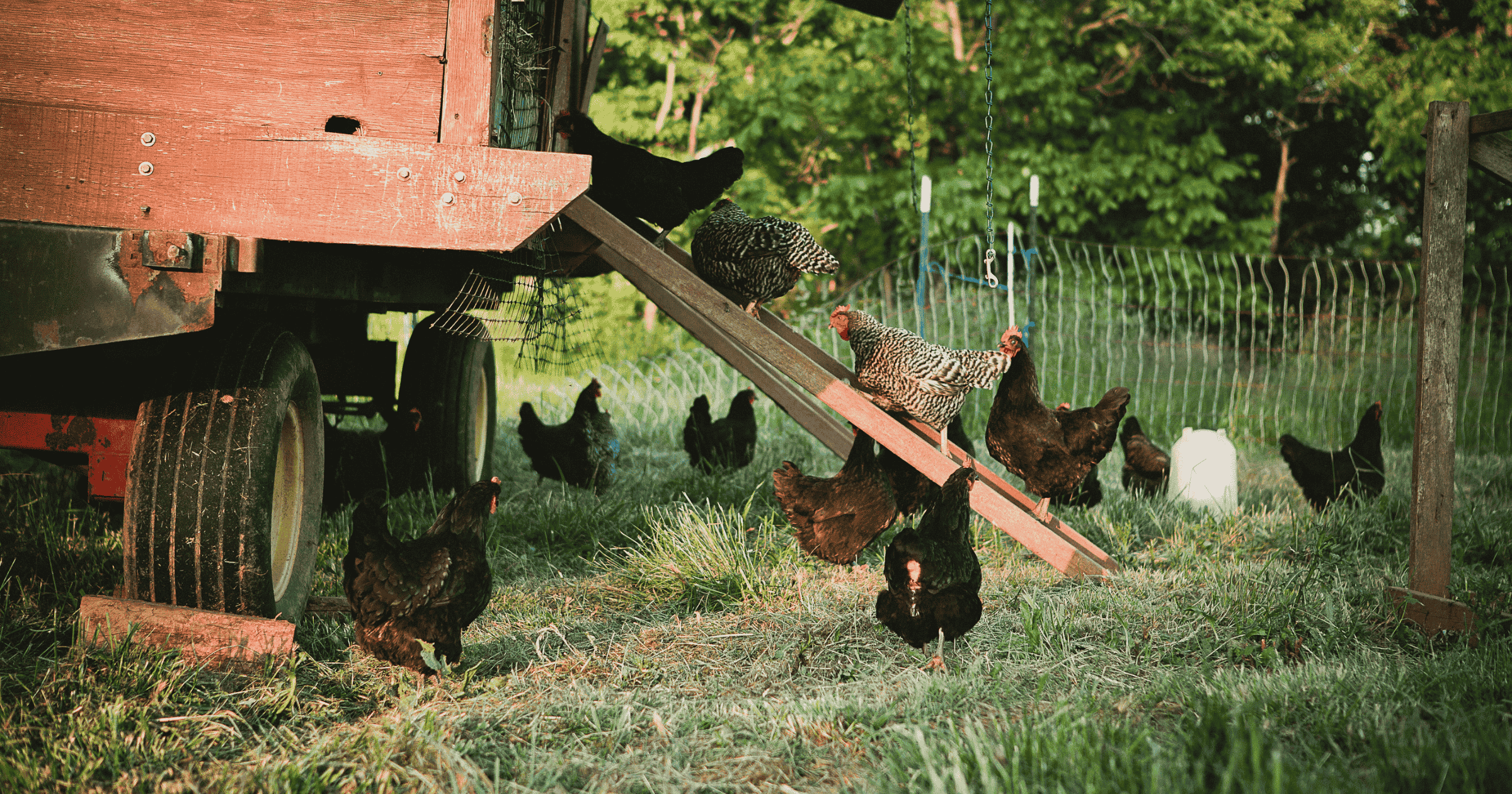
07 Apr Sustainable Poultry Farming in Nigeria: Eco-Friendly Practices for Better Profits
Introduction: Why Sustainable Poultry Farming Matters in Nigeria
With Nigeria’s poultry industry growing rapidly to meet the increasing demand for eggs and chicken meat, it’s more important than ever to adopt sustainable farming practices. Sustainable poultry farming not only boosts profitability but also reduces environmental impact, promotes animal welfare, and improves long-term productivity.
Whether you’re a smallholder farmer in a rural area or managing a large-scale poultry business in Lagos or Abuja, sustainability should be part of your strategy.
This guide will explore sustainable poultry practices for Nigerian farmers, from feed management and waste control to housing, water use, and eco-friendly inputs.
What Is Sustainable Poultry Farming?
Sustainable poultry farming refers to methods that ensure economic viability, environmental health, and social responsibility. It’s about producing eggs and chicken in a way that:
- Minimizes waste
- Reduces environmental degradation
- Improves bird health and welfare
- Maximizes resources like feed, energy, and water
- Ensures long-term profitability
In Nigeria, where resources can be limited and the climate presents unique challenges, sustainability can make or break a poultry venture.
1. Efficient Housing and Ventilation
Poor housing is one of the leading causes of disease outbreaks, heat stress, and mortality in Nigerian poultry farms.
✅ Sustainable Housing Tips:
- Use locally sourced materials like bamboo, mud bricks, or recycled wood.
- Build coops with proper ventilation to regulate temperature, especially in hot regions.
- Orient the poultry house east-west to reduce direct sun exposure.
- Install roof insulation or use reflective roofing sheets to manage heat.
- Maintain dry litter to reduce ammonia buildup and respiratory issues.
Well-designed housing reduces the need for antibiotics and lowers mortality, saving you money in the long run.
2. Use of Renewable and Affordable Energy Sources
Power supply is inconsistent and expensive in Nigeria, especially for farms relying on fans, lighting, or water pumps.
🔋 Sustainable Energy Options:
- Solar-powered lighting and fans
- Rainwater harvesting with solar water pumps
- Biogas systems using poultry droppings for energy
- Battery-backed inverters instead of diesel generators
Switching to solar can significantly reduce energy bills and make operations more stable.
3. Organic and Locally Sourced Poultry Feed
Feed is the largest cost in poultry production. Importing commercial feed isn’t always sustainable due to rising prices and transport challenges.
🌽 Feed Sustainability Tips:
- Use locally available ingredients like maize, soybeans, cassava peels, and groundnut cake.
- Explore formulated organic feed with nutrient-rich additives like moringa, blood meal, or fish waste.
- Implement fermentation or sprouting of feed to increase digestibility and nutritional value.
- Introduce insect protein sources like black soldier fly larvae, which are cheap and eco-friendly.
You’ll cut costs and improve bird health naturally.
4. Waste Management and Manure Recycling
Poultry farms in Nigeria generate tons of waste — droppings, feathers, feed remnants — all of which can harm the environment if not handled correctly.
♻️ Sustainable Waste Strategies:
- Compost poultry manure for use as organic fertilizer.
- Sell dried manure to crop farmers as an extra income stream.
- Set up biogas digesters for energy generation from waste.
- Use droppings in aquaculture or to enrich degraded soil.
A clean, odor-free environment also enhances the health and productivity of your flock.
5. Water Conservation and Quality Control
Water scarcity and contamination are serious issues in parts of Nigeria. Birds need clean, cool water for digestion, egg formation, and temperature regulation.
💧 Water Sustainability Tips:
- Use nipple drinkers instead of open containers to reduce waste.
- Install rainwater harvesting systems for storage during dry seasons.
- Treat water with safe disinfectants or filter through sand/UV systems.
- Reuse lightly contaminated water (e.g., from cleaning) for composting.
Managing water efficiently can reduce disease outbreaks and ensure steady egg production.
6. Natural Disease Prevention and Health Practices
Over-reliance on antibiotics is both unsustainable and dangerous for food safety. Sustainable farms focus on natural health management.
🐔 Disease Control the Eco-Friendly Way:
- Practice vaccination schedules strictly and early.
- Use natural supplements like moringa, garlic, ginger, turmeric, or aloe vera in feed or water.
- Apply biosecurity protocols – foot dips, visitor control, disinfecting equipment.
- Rotate pastures (for free-range) to prevent disease buildup.
Healthier birds = less cost on treatment = more profit.
7. Ethical Treatment of Birds
Animal welfare is increasingly important to consumers. Sustainable poultry farming means raising birds in ways that allow for natural behaviors and reduce stress.
🐣 Ethical Farming Practices:
- Provide enough space per bird (avoid overcrowding).
- Allow free-range movement or perches where possible.
- Avoid debeaking or forced molting.
- Handle birds gently during transportation and vaccination.
Happy birds lay better eggs and grow healthier!
8. Community and Social Impact
Sustainable poultry farming also supports community development. You can:
- Train and hire local youth and women.
- Sell eggs and meat locally to reduce carbon footprint.
- Partner with nearby farms for feed or manure exchange.
- Educate consumers about the value of organic eggs and chicken.
Why Sustainability Pays Off in Nigeria
Many Nigerian farmers still see sustainable practices as expensive or optional. But in truth, sustainable poultry farming reduces waste, saves money, and builds resilience.
💡 Benefits You Can Expect:
- Lower feed and energy costs
- Higher bird survival rates
- Premium pricing for eco-conscious products
- Cleaner environment and healthier birds
- Long-term business stability
Final Thoughts
Sustainable poultry farming in Nigeria isn’t just an ideal — it’s a necessity for long-term success. As climate change, disease outbreaks, and rising costs threaten traditional systems, now is the time to adopt eco-friendly, cost-saving practices.
Whether you’re just starting out or scaling your operation, applying these sustainable principles will help you thrive as a modern Nigerian poultry farmer.
Recent posts
- How to Make Akara and Moi Moi with Farm Eggs | Delicious Nigerian Recipes
- How to Make Perfect Omelettes with Farm Eggs | Easy, Delicious Recipe
- Easy Egg Salad Recipes with Farm Fresh Eggs | Delicious & Nutritious
- Deviled Eggs with Local Nigerian Ingredients | Easy Recipe
- Delicious Nigerian Dishes Made with Eggs | Tasty Egg Recipes
Your cart
Your cart is currently empty!








No Comments